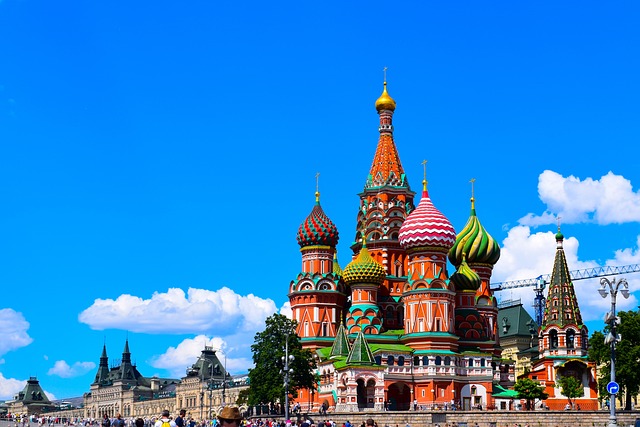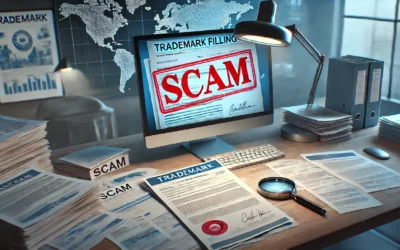Since Russia’s aggression against Ukraine about 1,5 years ago, the number of international trademark applications designating Russia have approximately halved. In the 6-month period before the invasion, there were more than 8000 international trademark registrations designating the Russian federation. Fast forward one year, and in the same period the figure is less than 5000 applications. During the same time, the number of international trademarks designating Ukraine has dropped from 3720 to 2389.
After the invasion, many companies stated that they would voluntarily cease operations in Russia. For example, the French cosmetics company L’Oreal was quick to announce that they would suspend all operations in Russia. Many other companies did the same.
Around the same time, the Russian authorities announced that as a countermeasure, they would suspend the intellectual property protection of Western companies in Russia. In other words, Russian authorities would not prevent a Russian company using Western trademarks like Heineken, L’Oreal or McDonald’s. The Russian authorities also announced that they would allow parallel imports, i.e. genuine products bought in another country and brought to Russia against the trademark owner’s consent.
Despite the suspension of trademark protection and allowing parallel imports, Western companies are still filing for trademark protection in Russia. According to World Intellectual Property Organization’s (WIPO) database, Chinese companies are currently filing the most trademark applications in Russia. In fact, the number of new trademark applications originating from China to Russia has not significantly changed. French companies are also still filing a lot of trademarks in Russia. At the same time, for example, new trademarks from the US and German companies have more than halved.
As for individual companies, these are the biggest filers of trademarks since the war began on February 24, 2022.
| L’OREAL | 113 |
| HYUNDAI MOTOR COMPANY | 100 |
| BERLINCHEMIE AKTIENGESELLSCHAFT | 85 |
| APPLE INC | 64 |
| HUAWEI TECHNOLOGIES CO LTD | 49 |
| BOEHRINGER INGELHEIM INTERNATIONAL GMBH | 38 |
| BAYER AKTIENGESELLSCHAFT | 38 |
| JANSSEN PHARMACEUTICA NV | 37 |
| RICHTER GEDEON NYRT | 37 |
| EGIS GYOGYSZERGYAR ZRT | 36 |
| KIA CORPORATION | 36 |
| ALBAUGH TOVARNA KEMICNIH IZDELKOV DOO | 29 |
| OBSHCHESTVO S OGRANICHENNOY OTVETSTVENNOSTYU EVROTORG | 28 |
| MYTHOS STUDIOS LLC | 27 |
| GR OPCO LLC | 27 |
| BAUSCH HEALTH IRELAND LIMITED | 23 |
| GILEAD SCIENCES IRELAND UC | 23 |
| SAMSUNG ELECTRONICS CO LTD | 22 |
| ASTRAL IP ENTERPRISE LTD | 22 |
| HONOR DEVICE CO LTD | 21 |
| MIZUNO CORPORATION | 21 |
| SYNGENTA CROP PROTECTION AG | 20 |
| NINTENDO CO LTD | 19 |
| GUERLAIN | 19 |
| ABERCROMBIE & FITCH EUROPE SAGL | 18 |
| NOVARTIS AG | 18 |
| KRKA TOVARNA ZDRAVIL DD NOVO MESTO | 18 |
| SOCIETE DES PRODUITS NESTLE SA | 17 |
| VIENNA INSURANCE GROUP AG WIENER VERSICHERUNG GRUPPE | 17 |
| HERMES INTERNATIONAL | 17 |
| DYSON TECHNOLOGY LIMITED | 17 |
| SOREMARTEC SA | 17 |
| GUANGDONG OPPO MOBILE TELECOMMUNICATIONS CORP LTD | 16 |
| BORA CREATIONS SL | 16 |
| EMEIS COSMETICS PTY LTD | 15 |
| BAYERISCHE MOTOREN WERKE AKTIENGESELLSCHAFT | 15 |
| ENEL SPA | 15 |
| DSM IP ASSETS BV | 14 |
| GOOGLE LLC | 14 |
| INTERVET INTERNATIONAL BV | 13 |
| LOUIS VUITTON MALLETIER | 13 |
| HUAWEI CLOUD COMPUTING TECHNOLOGIES CO LTD | 13 |
| MOOSE CREATIVE MANAGEMENT PTY LTD | 13 |
| MERCEDESBENZ GROUP AG | 13 |
| ISLESTARR HOLDINGS LIMITED | 13 |
| GAIJIN GAMES KFT | 13 |
| UPL LIMITED | 13 |
| DANFOAM APS | 12 |
| ALIBABA CLOUD (SINGAPORE) PRIVATE LIMITED | 12 |
Many of these companies have publicly stated that they will stop operations in Russia. If a company does not operate in Russia, and the Russian authorities don’t protect their trademarks there anyway, why are these companies still filing these new trademarks?
Also, is this compatible with the PR image they are eagerly trying to sell to European consumers about not operating in Russia? Add to that, every trademark application that designates Russia means more revenue for the state to fund its war operations, though all in all the financial impact is completely negligible. Much more important is the symbolic value of these new trademark filings because they signify that these companies still consider the Russian market important for them, or at least important enough to invest in intellectual property protection even in a highly uncertain business environment.
On the other hand, the war will not last forever and companies must make long-term plans and investments. Part of that is the protection of intellectual property. Filing for trademarks in Russia is perhaps part of that plan. Whether or not to file for new trademarks in Russia involves several of difficult questions, such as:
- Is it ethical to do business in a country that is currently engaged in an illegal war? Many people believe that it is not.
- Will filing for new trademarks in Russia legitimize the Russian government? By filing for new trademarks, companies are essentially giving the Russian government a seal of approval.
- What are the implications for the company’s reputation if it continues to do business in Russia? Many are boycotting Russian products and services, and companies that continue to do business in Russia might face backlash from consumers.
- What are the legal implications of filing for new trademarks in Russia? It is possible that the Russian government could seize trademarks that are filed by foreign companies. This could have a significant impact on the company’s business, and as said above, steps in this direction have already been taken.
- The company’s values. Some companies have a strong commitment to social responsibility, and they may feel that it is not in line with their values to continue doing business in Russia.
Ultimately, it is for every company to decide what’s best for them. The company executives and directors have a legal obligation to act in the best interests of their shareholders. What that means in terms of investing in Russia, may change from company to company, but at least for now, it seems that many companies are taking the view that protecting their brands in Russia is important, while at the same publicly distancing themselves from any business dealings there.
See related posts:
How does Russia’s attack against Ukraine affect intellectual property?
Russia’s latest IP trick: parallel imports



